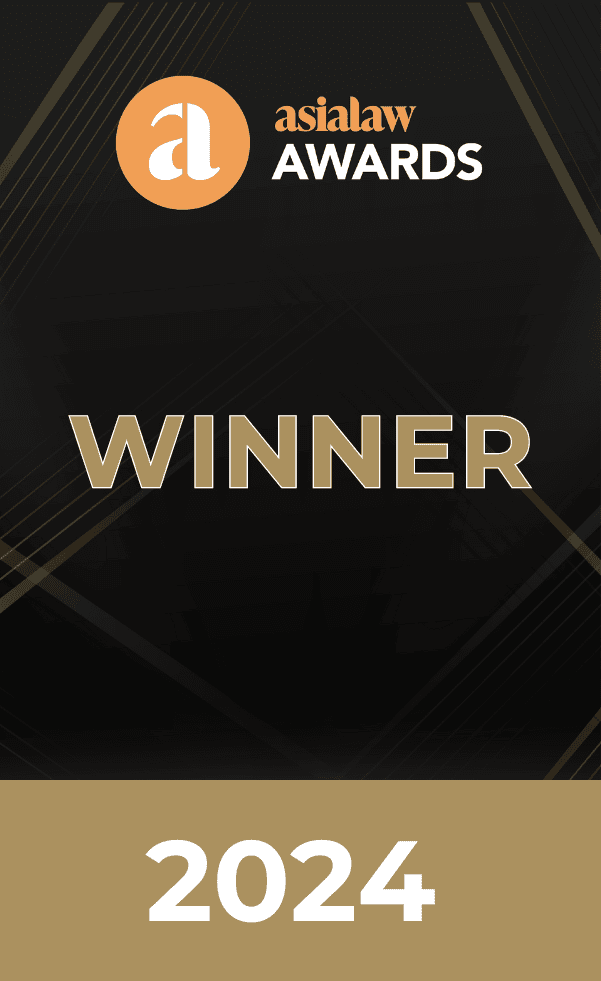Assistance from Hong Kong Courts Available to Foreign Liquidators
9 Jul 2020
It is not uncommon that foreign administrators/liquidators see the needs to seek enforcement or exercise their power in Hong Kong. The legal position in this regard is by and large aligned with the rest of the common law world in that Hong Kong Courts would recognize and assist foreign liquidators upon conditions being satisfied. The liquidator will then be able to exercise powers as if it were a local liquidator subject to certain limits. Importantly, this includes power to initiate actions.
Can Foreign Administrators/Liquidators put forward Corporate Rescue Plans in Hong Kong?
Many jurisdictions have formal corporate rescue regimes aiming at helping companies survive financial distress by letting those companies reorganize debts and trade out of difficulties, such as the Chapter 11 procedures in the United States and administration in the United Kingdom. Hong Kong lacks such formal corporate rescue framework. The closest alternative available is a “scheme of arrangement”, which is neither an insolvency nor a bankruptcy process, and can be used by both solvent and insolvent companies.
Most recently in January this year, the Legislative Council Panel on Financial Affairs tabled a proposal to revive a corporate rescue scheme similar to the US Chapter 11 scheme which was previously examined after SARS. Key features include having the company file documents with the Companies Registry, appoint a provisional supervisor, and that there will be a moratorium on legal actions against the company. Only time will tell what other features the scheme will embody, such as whether the moratorium will enable cross-border actions to protect a Hong Kong company’s overseas assets. In the meantime, the primary restructuring tool in Hong Kong remains the scheme of arrangement.
How does a Scheme of Arrangement Work?
A company in fiscal difficulty might compile a proposal for its creditors, proposing terms for a compromise of the company’s debts so that creditors may accept a lesser amount in full settlement of the debt. It should be noted that even where a company is undergoing a winding-up procedure, the liquidator has power to initiate a scheme of arrangement.
Once the proposal has been finalized, the application is made to the Court for its approval to convene meeting of each class of affected creditors. In each of the meetings, the scheme must be approved by both a majority of at least 50% in number, and a majority in number presenting at least 75% in value of the voting creditors. Then, upon the Court’s approval, an order sanctioning the scheme will be made. Such order will bind all creditors of the company, even if they did not vote.
Comparison with the UK CVA
Laws of Hong Kong relating to insolvency are derived from that of the UK. The latter has evolved with progressive development whereas the HK’s insolvency regime is lagging behind. In the UK, in addition to the scheme of arrangement which largely resemble that in Hong Kong, financially-stricken companies might also opt for company voluntary arrangement (“CVA”).
A CVA allows a company to agree a composition or an arrangement with its creditors in satisfaction of some, or all, of its debts. To be effective, a CVA requires the approval of the requisite majorities of the company’s creditors and shareholders. In the case of creditors, a majority of three-quarters or more (in value) of those responding must vote in favour of the proposals to approve the CVA. As for shareholders, it requires more than half in value of the company’s shareholders present in person or by proxy and voting at a meeting on the resolution to approve the CVA.
Once the CVA is approved by both creditors and shareholders, it binds all the company’s unsecured creditors who were entitled to vote at the meeting (even if they did not vote). However, a CVA cannot bind secured or preferential creditors without their consent. In addition, it must not unfairly prejudice the interests of any creditor.
The below table sets out key differences between schemes of arrangement (whether in Hong Kong or the UK) and the UK CVA:-
| Scheme of arrangement | CVA | |
| Court involvement | Extensive court involvement | Court involvement only if the CVA is challenged |
| Shareholders & creditors involvement | Only creditors vote on the scheme of arrangement | Shareholders’ majority also required |
| Effect over secured and preferential creditors | Secured and preferential creditors can be bound by a scheme | Secured and preferential creditors not bound by CVA without consent |
| Moratorium | Lacks the ability to impose a moratorium on creditor actions | Statutory moratorium only available for small companies (turnover ≤ £10.2m; balance sheet assets ≤ £5.1m; and ≤ 50 employees) |
| Effect on contracts | Might not trigger insolvency-related cross-defaults; outside the scope of statutory insolvency regime | Would trigger insolvency-related cross-defaults in company contracts |
What kind of company can invoke a scheme in Hong Kong?
Apart from companies incorporated under the Companies Ordinance in Hong Kong, the Courts of Hong Kong may also approve schemes of arrangement having a “sufficient connection” with Hong Kong, as evidenced by factors such as listing on the Hong Kong Stock Exchange, having creditors/management located in Hong Kong etc. In other words, foreign-incorporated companies, such as those in offshore jurisdictions, can also apply for approval of the scheme (as long as they can establish a sufficient connection with Hong Kong). It is therefore common for a foreign company with debts and liabilities in Hong Kong to seek the Court’s sanction for a scheme of arrangement in Hong Kong.
If you as a receiver or liquidator of a foreign-incorporated company would like to seek approval for a scheme of arrangement in Hong Kong, our firm’s team of experienced lawyers will be able to assist in matters including but not limited to devising a restructuring strategy, advising on each step of the restructure, negotiations with creditors if necessary, as well as preparation of proposed terms of the scheme. We will also be able to offer bespoke advice on the suitability of implementing a scheme and whether other alternatives are available to the company, so as to tailor to the specific needs of each company.
Is Statutory Moratorium Available in HK?
There is no statutory moratorium on creditor actions prior to a scheme of arrangement becoming effective, which practically means that any creditor can take legal action against the company. The company, during the process of restructuring, is therefore still susceptible to enforcement action by creditors or winding up petition and might still be exposed to risk of its restructuring efforts being thwarted.
In view of the lack of moratorium in schemes in the insolvency context, often case companies negotiating a scheme might at the same time initiate a provisional liquidation/liquidation to effectively create the necessary moratorium. By virtue of section 186, Companies (Winding Up and Miscellaneous Provisions) Ordinance (Cap. 32)(“CWUMPO”), when a winding-up order has been made, or a provisional liquidator has been appointed, no proceeding shall be proceeded with or commenced against the liquidating company (except with leave of Court). This in effect creates a moratorium on creditor actions against a company which has entered liquidation/appointed a provisional liquidator.
What if a Foreign Statutory Moratorium is sought to be enforced on Hong Kong assets/liabilities?
There are limits to the Hong Kong Court’s ability to provide assistance to foreign office holders. For instance, in Joint Administrators of African Minerals Ltd v Madison Pacific Trust Ltd where a UK administrator sought assistance from the Hong Kong Court in recognising a UK moratorium, the Hong Kong Court refused to provide assistance because the Court’s power to assist foreign liquidation was limited to the type of order available to a liquidator in Hong Kong. At present, Hong Kong does not have any equivalent mechanism to administration, and in particular there is no statutory provision which provides for a moratorium on the enforcement of a secured debt. Providing assistance to the administrator to enforce a moratorium would be an impermissible extension of common law principles.
As to what might happen if a foreign liquidator seeks a court order imposing moratorium over a Hong Kong company as part of a group restructure, the issue was considered in Re CW Advanced Technologies Limited, which involved a Hong Kong company, being part of a Singapore-headquartered corporate group held by a Cayman holding company. The group applied to the Singapore court for a 6-month moratorium (“SG Moratorium”) while it underwent restructuring. The group and the company’s largest creditor, Bank of China, took out an application to appoint provisional liquidators over the Hong Kong company. Harris J held that provisional liquidators be appointed, but did not give them power to pursue debt restructuring (e.g. by using the SG Moratorium).
For the Hong Kong Court to recognize and assist foreign office holders in liquidation, certain conditions must be met (for details, please see our article “Legal Update: Hong Kong Court Recognizes Application by Shanghai Liquidators”). It was unclear whether the SG Moratorium was a collective insolvency proceeding for common law recognition purposes. Even if it was, there was no Hong Kong authority on whether the court may recognize a foreign insolvency proceeding where the foreign jurisdiction was not the country of incorporation. And even if the SG Moratorium was eligible for recognition, there was no Hong Kong authority on whether the court may assist by appointing provisional liquidators. In the end, the Court left open the issue whether it should recognise foreign moratoriums in the future.
Whether the Hong Kong Court will recognize foreign moratoriums largely depends on the facts of each case. Factors to be considered include the place of incorporation of that company in liquidation, the processes taking place in Hong Kong, and eligibility of foreign creditors for Hong Kong Court’s assistance. If the company in question does not have tangible existence in its place of incorporation (i.e. it is a mere brass-plate), and that no winding-up proceedings are taking place in Hong Kong where it has no material assets/creditors, it might just be that foreign liquidation is the most appropriate way to wind-up the company. In such circumstance, recognition will likely not be granted to a foreign moratorium.
What Enforcement Actions may be taken in Hong Kong?
Given that Hong Kong does not have debtor protection insolvency regimes like the US Chapter 11 regime or UK administration, rights of secured creditors in Hong Kong are generally unaffected by liquidation or schemes because neither a liquidation (until winding up order has been made or provisional liquidator appointed) nor a scheme (until implemented) provides for a stay or moratorium on security enforcement. Commencement of insolvency procedures does not affect a secured creditor’s rights as they are entitled to be paid out of the proceeds of their security (unless transaction is subject to claw back by liquidator e.g. in unfair preference, undervalue transactions, extortionate credit transactions, dispositions in compulsory liquidation etc.)
Generally, once a security is enforceable (e.g. upon default), the lender can enforce its security immediately. Depending on the nature of the security, enforcement could be by way of appointment of a receiver, foreclosure or taking possession. As for enforcement of judgments, the enforcement methods depend on the nature of the judgment. Where a judgment or order is for payment of money (not payment into court however), the judgment may be enforced by a Writ of fieri facias, garnishee proceedings, charging order or appointment of receiver (also in the case of judgment or order is for payment of money into court). Judgments for possession of land are enforced by a Writ of possession.
a. Receivership – whereby a receiver would be appointed to take physical possession of and sell a collateral.
b. Foreclosure – empowering mortgagee to take possession of mortgaged property and become the absolute owner of the foreclosed property, extinguishing the equitable rights of redemption by the debtor i.e. the mortgagor.
c. Possession and distraint order – commonly used by landlord to regain possession of premises where the debtor fails to pay rent.
d. Garnishee order – Court order which would direct a third party such as bank to pay any amount owed to the debtor to the creditor directly.
e. Writ of Fieri Facias – Writ which allows goods to be seized and sold by public auction. and the proceeds of sale handed to the judgment creditor.
If you have any question regarding the topic discussed above, please contact our partner Anna Chan at anna.chan@oln-law.com for further assistance.
Disclaimer: This article is for reference only. Nothing herein shall be construed as Hong Kong legal advice or any legal advice for that matter to any person. Oldham, Li & Nie shall not be held liable for any loss and/or damage incurred by any person acting as a result of the materials contained in this article.
 Suite 503, 5/F, St. George's Building, 2 Ice House Street, Central, Hong Kong
Suite 503, 5/F, St. George's Building, 2 Ice House Street, Central, Hong Kong +852 2868 0696
+852 2868 0696















